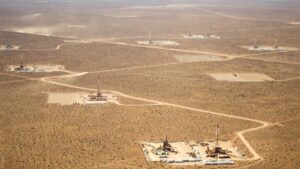
(Petrobras, 18.Sep.2020) — Petrobras launched two programs aimed at preparing its refining and natural gas activities for an open, competitive market and to transition into a low carbon economy. Biorefino 2030 forecasts projects for the generation of new, more modern and sustainable fuel, different than the current ones, such as renewable diesel and aviation biokerosene, for example. Also in the refining field, the Company intends to reduce, by 2025, the water capturing volume of its refineries by 30% and reduce its carbon intensity in the segment by 16%.
Renewable diesel is an advanced biofuel, produced from vegetable oils and containing the same structure as conventional diesel fuel. This new fuel reduces the emission of greenhouse gases by 70% versus mineral diesel oil and by 15% compared to ester biodiesel. It is free of contaminants and does not damage engines, effectively increasing vehicle life and reducing transport costs. The sale of this biofuel in Brazil is still pending regulation by the National Petroleum Agency (ANP).
BioQAv, or aviation biokerosene, will be used worldwide to reduce the emission of greenhouse gases. This was resolved by the International Civil Aviation Organization (ICAO) and the use of BioQAv will be mandatory in Brazil as of 2027. The production process for BioQAv, through hydrogenation, uses the same raw materials required for the production of renewable diesel and the industrial units that produce BioQAv have renewable diesel (HVO) as a co-product. Therefore, if on one hand the production of BioQAv can be stimulated by renewable diesel, on the other, it can increase the competitiveness of both products.
Petrobras also forecasts investments to increase the production of low-sulfur S-10 diesel, to the detriment of S-500 diesel. To achieve this, the Reduc unit, in Duque de Caxias-RJ, and the Revap unit, in São José dos Campos-SP, will be modernized. A new diesel hydrotreating unit will also be built at Replan. Another initiative under analysis is the integration of the Reduc unit with Gaslub Itaboraí, which will allow high quality lubricants to be produced with more advanced technology.
Digital Transformation
Petrobras also began to implement artificial intelligence projects in its refineries, such as the Digital Twins technology, which is a rigorous and integrated process for a refinery unit, considering the initial entry of oil to the exit of specified derivatives. Simulators are used in order to explore the optimum operating conditions that lead to maximum asset profitability, thus optimizing production in real time. This technology also contributes with work safety and maintenance activities. In 2020 alone, this new technology has already enabled Petrobras to achieve approximately US$100 million in revenue gains for its refineries.
The following digital tools are also used by the Company in its thermoelectric and gas processing units: data lake; data specialist; cloud storage and artificial intelligence (AI) with Trip Detector, which, by analyzing the operational parameters of equipment and crossing checking with an event database, makes real-time projections of trip events, allowing the operator to avoid them. Additionally, Petrobras also began to use the Smart Alarm tool at its thermoelectric plants, an intelligent alarm and fault identification system that consolidates failure data into a single interface in order to helps operators, quickly, assertively and in real time, in their decision-makings, thus increasing reliability, availability and the safety of processes and employees at these units. This solution will be scalable to the Company’s other industrial plants.
Gás +
Another initiative is Gás +, a program aimed at implementing actions that increase Petrobras’ competitiveness in the natural gas segment. New marketing and product segmentation modalities are planned, as well as gas processing services in Treatment Units and the use of tools, such as digital contracts and sales through automated platforms. The objective is to offer more customer satisfaction and maintain client loyalty with Petobras.
The company is also expanding the operational capacity of the liquefied natural gas regasification terminal in Guanabara Bay (TR-BGUA), from 20 MM m³/day to 30 MM m³/day. Additionally, with the operational start-up of the Rota 3 gas pipeline, it will be possible to drain up to 44 MM m³/day of natural gas from the pre-salt areas. The Company is also implementing an adequacy project at the UTGCA (Caragutatuba Unit) to enable it to process up to 10 MM m³/day of gas from the Santos Basin Pre-Salt Pole without needing to mix it with Post-Salt gas.
In thermoelectric generation, the Company’s focus is on high performance assets. To this end, it is modernizing existing assets in order to improve energy efficiency and reduce emissions, as well as conducting research with new CO2 turbines in a combined cycle, increasing energy generation without capturing water and impacting emissions. The Company is also in the initial phase of studies regarding a new high-efficiency thermoelectric project integrated with Polo Gaslub.
__________

